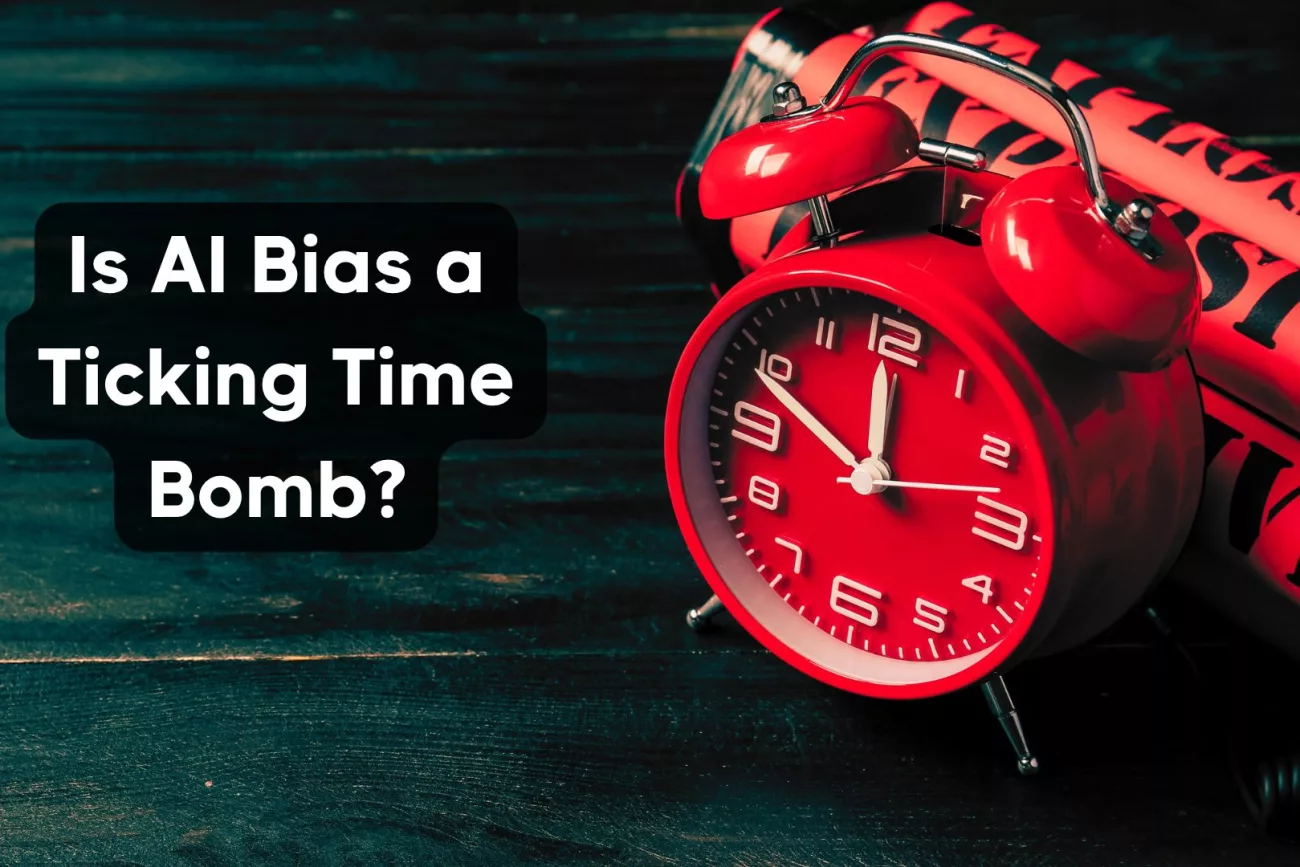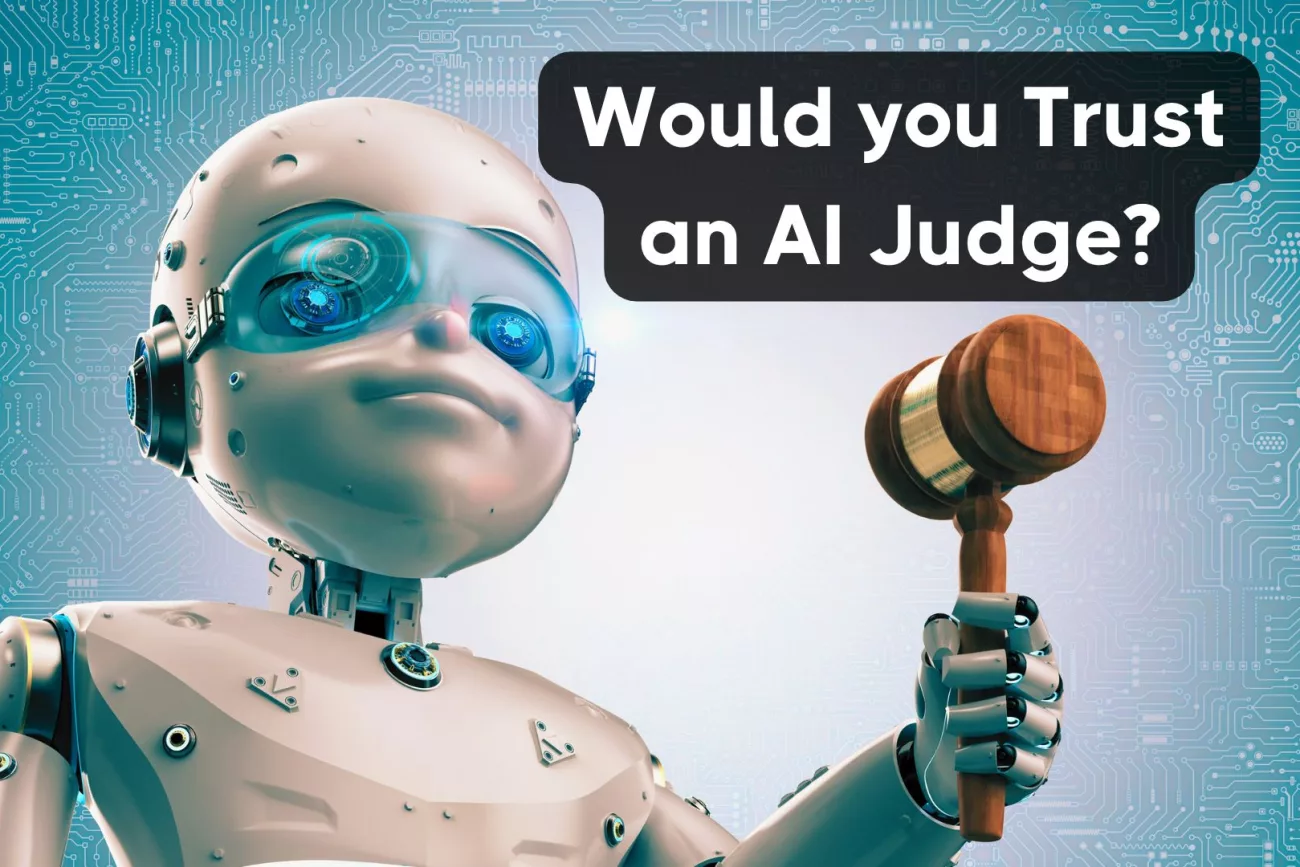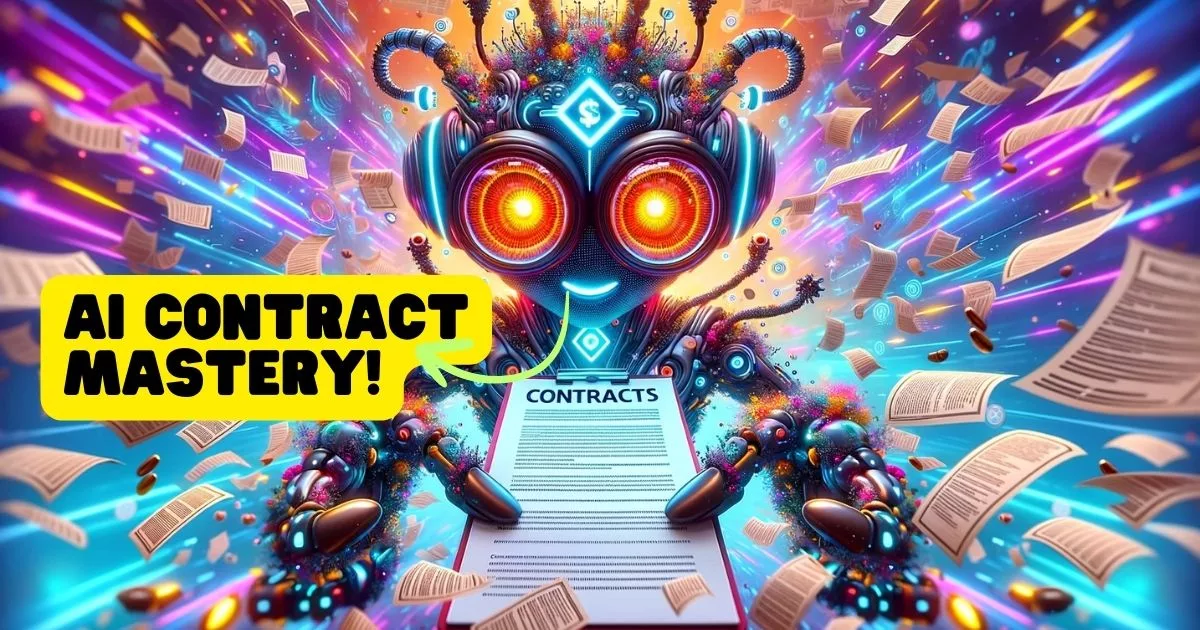
Key Points:
- The unseen threat of AI bias in startups and its potential consequences.
- The complexity of AI bias and its ability to creep into systems unnoticed.
- Controversial solutions such as legislating AI and enhancing transparency.
- The urgent need to address AI bias and ignite conversations around it.
The Looming Threat
“There isn’t any AI today that is sentient… Realize that today’s AI is not able to ‘think’ in any fashion on par with human thinking. When you interact with Alexa or Siri, the conversational capacities might seem akin to human capacities, but the reality is that it is computational and lacks human cognition.” – Dr. Lance B. Eliot, AI Insider1.
These words serve as a stark warning about the impending threat of AI bias in startups. The systems we trust, the decisions they influence – they’re all at risk.
A Critical Issue for Startups
AI bias isn’t just another buzzword. It’s an insidious problem that sneaks into our technology, creating errors and inaccuracies. Startups leveraging AI must understand and rectify any bias within their systems. Bias can lead to misleading results, flawed decision-making, negative customer experiences, and even legal consequences2.
Types of AI Bias
Let’s break down the types of AI bias:
- Prejudice Bias: When AI systems inherit societal biases related to race, gender, age, or other demographic factors2.
- Confirmation Bias: AI systems favor data supporting pre-existing beliefs while disregarding conflicting data2.
- Selection Bias: Occurs when training data isn’t representative of the population, skewing the AI’s predictions or suggestions2.
- Automation Bias: Decision-makers favor suggestions from an AI system over human judgment, even when the AI’s recommendations are flawed2.
Each of these biases threatens the accuracy and fairness of AI systems in startups, making AI bias an urgent issue that cannot be ignored.
Mitigating AI Bias: A Call to Action
Understanding AI bias is just the first step. Startups must take proactive measures to identify and mitigate it.
- Balanced and Representative Data Collection: Ensure the training data mirrors the demographic you’re serving, avoiding an imbalance in representation2.
- Robust Model Development and Cross-Validation: Apply various models and consistently validate them on diverse datasets to rectify biases2.
- Transparency and Interpretability in AI Operations: Understand your AI systems’ outputs and the path it took to arrive at these results2.
- Consistent Monitoring and Adaptation: AI bias isn’t a one-time problem, it demands ongoing surveillance and modifications to assure your AI systems remain unbiases2.
- Establishing Human Supervision: Human supervision is crucial to spot and rectify biases that may escape the AI system2.
#AIbiasTickingBomb💣: Your Turn to Act!
It’s clear that AI bias is a ticking time bomb in the world of startups. We’ve unveiled the threat – now it’s your turn to act. What steps is your startup taking to combat AI bias? Share your thoughts in the comments and ignite the conversation using the hashtag #AIbiasTickingBomb💣.
Bear in mind, the future of AI is not merely about advancing technology but also about ensuring its ethical use. The fight against AI bias is the fight for a fairer, more equitable future.
The Invisible Enemy: Unraveling AI Bias
AI Bias: The Silent Puppet Master
Artificial Intelligence (AI), the marvel of our era, has gradually integrated itself into our lives, becoming a silent influencer of our decisions. Yet, this seemingly neutral system can be corrupted by an unseen enemy, AI bias. This insidious bias, often overlooked, can alter the AI’s output, leading to unfair and inaccurate results. Let’s dive deep into this invisible enemy, #AIbias.
AI bias refers to an error in output that arises due to inaccuracies in the data input or algorithmic processing within the AI system. For instance, if an AI system is trained predominantly on data from one specific group, it might develop a bias towards that group, resulting in unfair outcomes for others1.
Consider a job application evaluation AI system. If the training data consists mainly of successful applications from male candidates, the AI might unintentionally favor male applicants, subtly perpetuating gender inequality. Do these invisible strings of bias govern our AI systems and, by extension, our lives? #InvisibleStrings
Creeping Bias: The Unseen Influence
Unbeknownst to many, AI bias can creep into systems unnoticed, subtly warping their outputs. It can stem from a variety of sources, including prejudice, confirmation, selection, and automation bias, each of which can have a profound impact on AI’s decisions and recommendations1.
How can these biases infiltrate our AI systems, and how can we prevent them? It’s not always obvious. Bias often lurks subtly within AI systems, influencing them in ways that are harder to detect and correct1.
For instance, selection bias occurs when the data used to train the AI system isn’t representative of the whole population. If a healthcare AI assistant is trained on data primarily from urban populations, it could make recommendations that are less applicable or even misleading for rural users1.
The bias doesn’t stop there. Automation bias comes into play when decision-makers favor suggestions from an AI system over human judgement, even when the AI’s recommendation is evidently flawed. This can lead to poor decision-making, as seen when investment suggestions are accepted without scrutinizing the underlying logic or potential errors1.
The creeping and often unseen nature of these biases can make them hard to spot, let alone correct. They can gradually warp our AI systems, subtly influencing our decisions and actions. But, how can we fight an enemy we can’t see? #AIbias #UnseenInfluence
Have You Encountered the Invisible Enemy?
It’s time for a reality check. AI bias is real, and it’s probably impacting you more than you think. Have you ever felt like your AI assistant misunderstood you or made recommendations that didn’t quite fit your situation? Have you ever wondered why the ads you see online seem to favor certain groups or portray a limited perspective?
We want to hear your stories. Have you encountered AI bias in your life? How did it impact you, and how did you respond? Share your experiences using the hashtag #AIbiasStories. Let’s shine a light on this invisible enemy, and together, we can start to unravel the tangled web of AI bias.
Together, let’s challenge AI bias, the silent puppet master pulling the strings of our AI systems. It’s time to cut the strings and reclaim control. Let the revolution begin! #CutTheStrings #AIBiasRevolution
Remember, if you’re not paying for the product, you ARE the product! #WakeUp #AIbiasWakeUpCall🚨
The Cold, Hard Facts: AI Bias in Numbers 🤯💻📊
In today’s digital age, Artificial Intelligence (AI) is a powerful tool, weaving its way into every corner of our lives. But beneath the shiny surface of convenience and automation, a darker reality lurks: AI bias. This insidious phenomenon is an unintended consequence of our reliance on machines, reflecting the prejudices and blind spots of the humans who create and use them. Here are some cold, hard facts about AI bias and its impacts on businesses and society that you might find both shocking and thought-provoking.
Shocking Statistics on AI Bias: The Reality We Can’t Ignore 😱📈
- AI systems are not sentient, and they can’t “think” in the same way humans do. What we perceive as ‘intelligence’ in AI is purely computational and lacks human cognition1. A chilling truth, isn’t it?
- AI bias is far from a simple programming error. It can significantly impact a startup’s success, leading to misleading results and flawed decision-making. AI bias can even damage a business’s reputation and customer experience2.
- AI bias isn’t just a technical issue; it’s a societal one. It can manifest in various forms, including prejudice bias, confirmation bias, selection bias, and automation bias. Each type of bias can lead to unjust outcomes and ethical dilemma2.
- AI bias can result in legal and regulatory consequences. As AI regulation continues to evolve, businesses may face penalties if their AI systems are found to be biased or discrimination2.
- Even when AI bias is identified, it’s not a one-time problem. It requires continuous monitoring and adaptation to ensure that AI systems remain unbiased as they evolve and new data is learned2.
Real-World Ramifications of AI Bias: Case Studies that Prove the Point 👀🌐
How about some concrete examples to illustrate how bias infiltrates our AI systems? One prime instance was when a startup used an AI system to filter job applications. If the training data primarily included successful applications from male candidates, the AI system unintentionally favored male applicants over equally qualified female applicants. This is a form of prejudice bias, leading to significant social and ethical implications2.
In another case, a startup used an AI system to forecast sales trends based on past data. If the model was unintentionally programmed to give more weight to data confirming high sales during the holiday season, it might overlook patterns indicating potential drops in sales during that period. This is a clear demonstration of confirmation bias2.
Let’s Stir Things Up! Join the Conversation! 📢👥
Stunned? Angry? Intrigued? Let’s talk about it! Share your reactions to these startling facts in the comments below. Use the hashtags #AIbias #HardFacts #ColdTruths to join the conversation.
If you’re as shocked as we are by these statistics, give this post a like and share it with your network. Let’s spread the word about AI bias and start making a difference! #ArtificialIntelligence #AIFacts #ShockingStatistics
Remember, change starts with awareness. And the more we talk about AI bias, the closer we get to finding effective solutions to this pressing issue. So let’s get talking, #LinkedInCommunity!
As Bill Gates once said, “I think that AI will be able to do almost anything that humans can but it has to be used with great care.” Now, more than ever, we must grapple with the ethical and societal implications of this technology, especially as it continues to play an increasingly important role in our lives.
The Unseen Consequences: How AI Bias Damages Startups
In the world of startups, AI bias is a silent assassin, lurking in the shadows and waiting for the perfect moment to strike. From damaging reputations to driving financial loss and even leading to legal trouble, AI bias can have severe implications for any startup that chooses to ignore its existence.
The Damaging Reality of AI Bias
Reputation Damage:
As startups grow, their reputation becomes their lifeblood. A single instance of AI bias can turn the tide, resulting in a tidal wave of public backlash that can tarnish a startup’s image, possibly for good. Remember the controversy surrounding the AI recruiting tool developed by a leading tech giant, which preferred male candidates over females? That’s AI bias for you, and the damage was real and measurable. The negative press resulted in a significant loss of trust and goodwill for the company.
Financial Loss:
AI bias isn’t just a PR problem—it’s a financial sinkhole. It can lead to faulty decision-making, resulting in severe financial losses. For instance, an AI system displaying selection bias might recommend investing in a market segment based on skewed data. The result? Startups could potentially sink their capital into ventures doomed to fail from the start. The financial implications can be vast and potentially fatal.
Legal Trouble:
With AI regulation evolving, AI bias can land startups in hot legal water. Ignoring AI bias could lead to legal consequences, if AI systems are found to be biased or discriminatory. The recent lawsuit against a startup for racial bias in its AI recruiting tool is a glaring example of how AI bias can result in legal repercussions.
Real-World Fallout: AI Bias Case Studies
Case 1: Remember the infamous ChatGPT incident? The AI was caught in a controversy when it began generating offensive content. The negative fallout resulted in a loss of users and a considerable hit to the company’s reputation1
Case 2: Another instance is the AI home-loan tool that was found to be discriminating against applicants from certain ZIP codes. The company faced a lawsuit, substantial fines, and a massive hit to their reputation2.
Is AI Bias Justifiable?
Now, let’s take a step back and ask ourselves a fundamental question: Are these severe consequences justified? Is it fair to blame startups for the biases of their AI systems? Some argue that these are just growing pains of a new technology, while others view them as clear indications of ethical negligence.
What’s your take on this? Are startups the unsuspecting victims of AI’s growing pains, or are they culpable for the bias embedded within their AI systems?
👇 Let’s start a conversation. Share your thoughts on LinkedIn using the hashtag #AIBiasFallout. Let’s shed light on the unseen consequences of AI bias in startups. Will your perspective be the one to spark a revolution? Don’t hold back—your voice matters! 💬🔥🚀
Remember, in the world of AI, ignorance isn’t bliss—it’s bias. And this bias can have unseen, damaging consequences. So, let’s confront it head-on and ensure that our future isn’t written by the biased hands of artificial intelligence.
#AIBiasFallout #Startups #AIEthics #AIConsequences #SpeakUp
The Controversial Truth: Not All Bias is Bad
In the world of AI, the term “bias” often carries negative connotations. Rightly so, as it can lead to unfair outcomes and unjust practices. However, here’s a provocative thought: not all biases are bad. The concept of beneficial bias might be contentious, even downright controversial, but it’s a debate we need to have. Let’s delve into this hot topic and challenge our preconceived notions.
The Argument for Beneficial Bias
Many experts argue that some biases are essential to the functionality of AI systems. For instance, recommendation algorithms on streaming platforms like Netflix or Spotify rely on a sort of “bias” towards our previous choices to suggest content we might enjoy. In these cases, bias isn’t just beneficial—it’s indispensable. The key question here is: when does bias shift from being beneficial to harmful?
Furthermore, in AI language models like OpenAI’s GPT-4, a certain level of bias is inherent. It’s trained on a diverse range of internet text, which inevitably reflects the biases present in the world. However, OpenAI is committed to reducing glaring and harmful biases in how the AI responds to different inputs, even as they note the challenge of striking the right balance between reducing harmful bias and maintaining the utility of the system12.
A Provocative Standpoint
Elon Musk, CEO of Tesla and SpaceX, has been quoted saying, “AI doesn’t have to be evil to destroy humanity—if AI has a goal and humanity just happens in the way, it will destroy humanity as a matter of course without even thinking about it, no hard feelings.” This suggests that an AI’s “bias” towards its goal, devoid of any malice, could potentially have harmful consequences. The quote might seem extreme, but it underscores the complexity and importance of understanding bias in AI systems.
The Great #BiasDebate
So, we’ve uncovered a controversial truth: not all bias is bad. However, the debate is far from over. It’s a complex issue, with a delicate balance to strike between the utility and fairness of AI systems.
Now, it’s your turn to weigh in. What do you think about the idea of beneficial bias in AI? Is it a necessary evil, or can it be a force for good? Join the conversation and share your thoughts with the hashtag #BiasDebate. Don’t hold back—it’s time to stir the pot and make this debate go viral on LinkedIn.
Be sure to tag us in your posts and comments—we can’t wait to hear your take on this controversial topic.
Preemptive Strike: Can We Defuse the Time Bomb?
In our ongoing battle to harness the power of artificial intelligence (AI), we’ve stumbled upon a seemingly insurmountable issue: AI bias. As AI systems grow increasingly prevalent in our everyday lives, the biases they harbor pose a profound challenge. From hiring decisions to medical diagnoses, AI bias can skew outcomes, stoking controversy, and sparking debates about the ethical implications of this technology.
But is there a way to defuse this ticking time bomb? Can we neutralize AI bias before it wreaks more havoc? Let’s explore some controversial solutions, debate their merits, and wade into the murky waters of legislating AI and enhancing transparency.
Legislating AI: A Necessary Evil or a Pandora’s Box?
A controversial idea gaining traction is the regulation of AI. While some view this as an essential step to ensure fairness and accountability, others fear it could stifle innovation and place undue burdens on tech startups.
Pros:
- Accountability: Legislation could hold companies accountable for biased AI, potentially leading to more equitable systems.
- Standardization: Regulatory laws could establish universal standards for AI systems, promoting fairness across the board.
Cons:
- Innovation Stifling: Excessive regulations might slow technological advancement, hampering the growth of startups.
- Practical Implementation: Given the complexity of AI, effective regulation could prove challenging, potentially leading to legal loopholes and enforcement issues.
Enhancing Transparency: Unmasking the Black Box
Transparency in AI operations is another contentious solution. By revealing how AI systems reach their decisions, we could potentially spot and rectify biases. However, this approach isn’t without its pitfalls.
Pros:
- Bias Detection: Enhanced transparency can help identify and correct biases in AI systems.
- Trust Building: Understanding how AI systems work can build trust among users and stakeholders.
Cons:
- Intellectual Property Concerns: Revealing the inner workings of AI systems might lead to intellectual property theft.
- Overwhelming Complexity: The complex nature of AI might make full transparency impractical, potentially confusing users more than enlightening them.
Regardless of where you stand on these issues, one thing is certain: AI bias is a ticking time bomb that we need to defuse. We must face these controversies head-on and work together to find viable solutions.
Now, it’s your turn to weigh in. Which approach do you believe holds the most promise in tackling AI bias: legislating AI or enhancing transparency? Or perhaps you have an entirely different solution in mind? Share your thoughts in the comments and let’s ignite a conversation that could shape the future of AI.
Don’t forget to use the hashtag #AIBiasSolutions when sharing your thoughts. Together, we can address this critical issue and pave the way for a fairer, more inclusive AI-powered world.
AI Bias – The Controversy that Demands Our Attention Now!
The Unsettling Reality of AI Bias
Ladies and gentlemen, the controversy around AI bias is nothing short of a digital Pandora’s Box. It’s a potent, complex issue that’s been simmering beneath the surface of our tech-driven world, ready to burst forth at any moment. A veritable digital ticking bomb💣!
AI, as remarkable as it is, is not immune to the biases of the societies it’s born from12. When AI systems are fed with skewed data or flawed algorithms, they reflect and even magnify our societal prejudices, leading to skewed insights and flawed decisions2.
The Troubling Domino Effect of AI Bias
The ripple effects of these biases are profound, disturbing, and far-reaching. From startups leveraging AI to drive growth, to consumers interacting with AI daily – no one is spared the impact2.
Let’s look at a real-world example: Imagine a job application screening process that unintentionally favors male applicants because the AI was trained primarily on successful applications from men. The ramifications are clear: deserving female candidates are overlooked, the company misses out on potential talent, and gender disparities in the workplace are reinforce2.
This is just the tip of the iceberg! AI biases can skew everything from product development to customer engagement strategies, creating a spiral of flawed decision-making that hampers growth and success2.
The Dilemma of Automation Bias
Even more alarming is our growing tendency towards automation bias. We’re increasingly favoring AI’s suggestions over human judgement, even when the AI’s recommendation is evidently flawes2. In the zeal to leverage AI’s speed and volume handling capabilities, we risk falling into a trap of over-reliance that could lead to poor decisions and substantial losses.
The Legal and Ethical Quandary
And let’s not forget the legal quagmire and ethical dilemmas AI bias stirs up. As AI regulations continue to evolve, companies can face severe legal consequences if their AI systems are found to be biased or discriminatory2. The ethical implications are equally grave. Is it fair to let a biased AI system decide who gets a job, a loan, or even healthcare advice?
The Ticking Time Bomb of AI Bias – #AIbiasTickingBomb 💣
The controversy around AI bias is not a storm in a teacup. It’s a ticking time bomb that threatens to disrupt our AI-dependent lives in ways we can’t yet fully comprehend. It’s a complex, urgent problem that demands immediate attention and action.
Ignite the Conversation: Your Call to Action
So, dear reader, what can you do about it? Start by spreading the word. Share this article with your networks on LinkedIn and raise awareness about the impending #AIbiasTickingBomb💣. The more we talk about it, the more urgency we create around finding solutions.
Remember, every conversation counts. Every shared article chips away at the silence surrounding AI bias. Don’t just sit back. Ignite the conversation. Today!
Let’s make sure this article goes viral! #AIbiasTickingBomb💣 #AIControversy #TimeToAct
Don’t forget, you have the power to make a difference. Let’s defuse the #AIbiasTickingBomb together!














